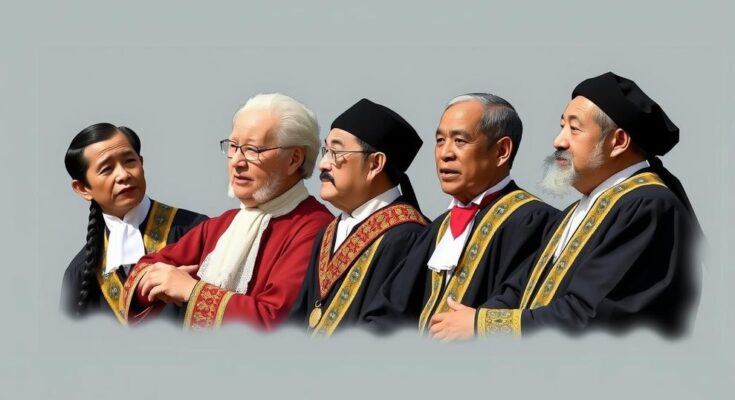Bolivia embarks on divisive elections for its highest judges amidst political conflict and public skepticism. Despite efforts to ensure fairness, the process reflects profound systemic challenges, with electoral delays and declining public trust in judicial independence. The implications of Bolivia’s unique approach to judicial selection extend beyond its borders, prompting scrutiny from regional observers and experts.
In Bolivia, an electoral process for its highest judicial positions is underway, marked by controversy and political ramifications. Although campaigning is prohibited, candidates have resorted to covert methods of promotion. The elections, unique in the global context, face skepticism, with many citizens expressing indifference or confusion over the candidates. Since the 2009 reform introduced by former President Evo Morales, public disillusionment has grown, as elections are perceived to weaken judicial independence, converting courts into partisan entities. Recent judicial elections saw delays due to political tensions between President Luis Arce and Morales. Despite this electoral cycle being partially reinstated, the effectiveness of the election process remains in question, indicating systemic flaws in the judiciary and political landscape.
The electoral system in Bolivia, particularly for judicial positions, is notable as it mandates public voting for judges, a process shared with no other country currently. The backdrop of these elections is shaped by historical events, including Morales’ controversial tenure, during which he sought to alter constitutional provisions to extend his presidency. This has resulted in lasting impacts on judicial integrity and public trust in legal institutions. Recent political conflicts have culminated in interventions from the Constitutional Court, further complicating the electoral process and raising concerns about the impartiality of the judiciary in Bolivia’s evolving political landscape. Experts are warning that such politicization poses considerable dangers to democratic governance in Latin America.
In summary, Bolivia’s judicial elections serve as a crucial case study in the intersection of politics and judicial independence. The elections, which began with the idea of democratizing the judiciary, have instead led to increased political conflict and diminished public confidence. As Bolivia navigates this complex landscape, the implications of its judicial processes resonate across the region, highlighting the delicate balance between political influence and the rule of law. Observers are closely monitoring these developments, particularly in light of similar reforms being considered in neighboring countries.
Original Source: apnews.com




